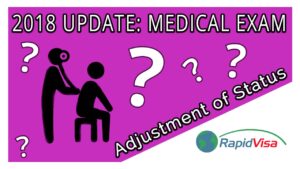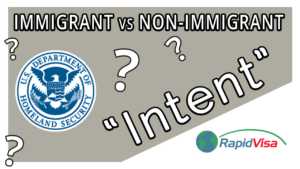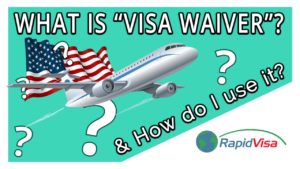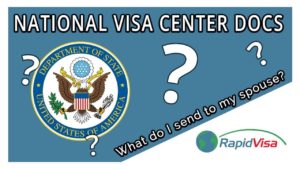Page 3 of the ‘Adjustment of Status’ Category
Adjusting your status as an immigrant to the United States is an important process. Here you’ll find all of the information you need to navigate your immigration journey. Have you read our Adjustment of Status Overview yet?
23Oct2018
The USCIS announced last week that effective November 1st, 2018, they will require applicants to submit form I-693 Report of Medical Examination and Vaccination Record that is signed by a civil surgeon no more than 60 days before filing the underlying application for immigration benefit. This applies to the adjustment of status or application to register […]
Read More »
09Oct2018
For K1 they require 100% of the poverty level, but that does go up to 125% once you get here and apply for the adjustment of status after you get married.
The best evidence is 3rd-party evidence, such as W2s, pay stubs, tax transcripts, etc. Anything that is impossible to generate yourself and is provided by a reliable 3rd-party is going to be the best evidence.
Read More »
21Sep2018
If you do not adjust status, your former fiance/current spouse is going to be in unlawful status. That doesn’t necessarily mean that she is going to be in any trouble, but you do want to apply for an adjustment of status as soon as possible.
Read More »
17Jul2018
What's the difference between immigrant and non-immigrant "intent"? The type of visa is determined by the purpose of the travel to the United States. Immigrant Visa An immigrant visa is for someone that intends to immigrate to the US or permanently live in the United States. Most immigrant visas have a path to citizenship after a number […]
Read More »
14Jul2018
In a disturbing memo issued by USCIS (PM-602-0163) on July 13, 2018, we were made aware of a new policy which will make it much easier for the Trump Administration to issue denials for legal immigration cases across the board (with the exception of DACA), including fiance visas, spousal visas, green card applications and more.
Read More »
25Jun2018
“I’ve read they passed a bill on where they go into your social media after interview, which would prolong the process, and that’ll effect a lot of K-1 Visas and my fiance is from the Philippines.”
The government has always had that authority to investigate pretty much anything.
Read More »
06Jun2018
New standards are being rolled out that are designed to basically make it harder to immigrate to the US. The process to immigrate has always included a quite extensive vetting process, but these new measures are likely going to make it even harder.
Read More »
16Apr2018
The Visa Waiver Program is a program the US has set up that allows most citizens from certain countries to travel to the US for tourism or business up to 90 days without the need for a visa.
To travel on Visa Waiver, each traveler must have Travel Authorization through the Electronic System for Travel Authorization (ESTA) prior to boarding a U.S. bound flight.
Read More »
20Feb2018
Julia asks: “My future husband and I want to get married, he’s already in the USA his tourist visa has expired and I have no idea what we need to do. I’m a US citizen and he is from Dominican Republic.”
Read More »
08Feb2018
Larissa asks: “How soon after you marry a US citizen can you get citizenship?” If you obtain your green card based on marriage, you have to wait three years to naturalize. Timelines for naturalization vary, so make sure you check the processing times for Form N-400 on the USCIS website. The three-year timeline also applies […]
Read More »









